Guidelines for UCD Local Communities Actionsto Help Pollinators.
A. Reduce the frequency of mowing of selected grassed areas on campus
- Over the past number of years, management practices have focused on increasing the proportion of biodiversity rich area on campus by strengthening and adding to existing areas in addition to developing new ones
- Over the last two seasons the area of amenity grassland under a Reduced Mowing Regime has been increased by 10’000m2
- Approximately 2,000 m2 of wildflower meadow has been developed to add to existing meadows such as the Conway Wildflower Meadow at Conway, sown in 2004.
- Biodiversity map link (UCD Estate Service Belfield Biodiversity)
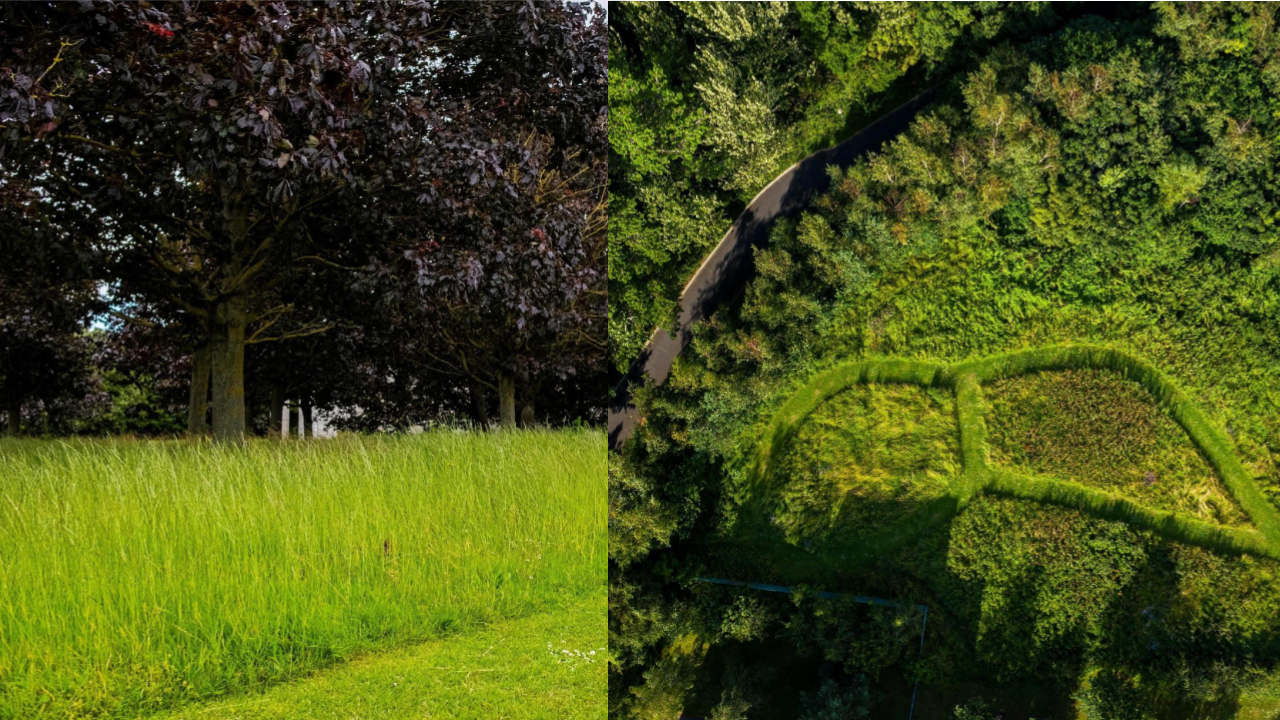
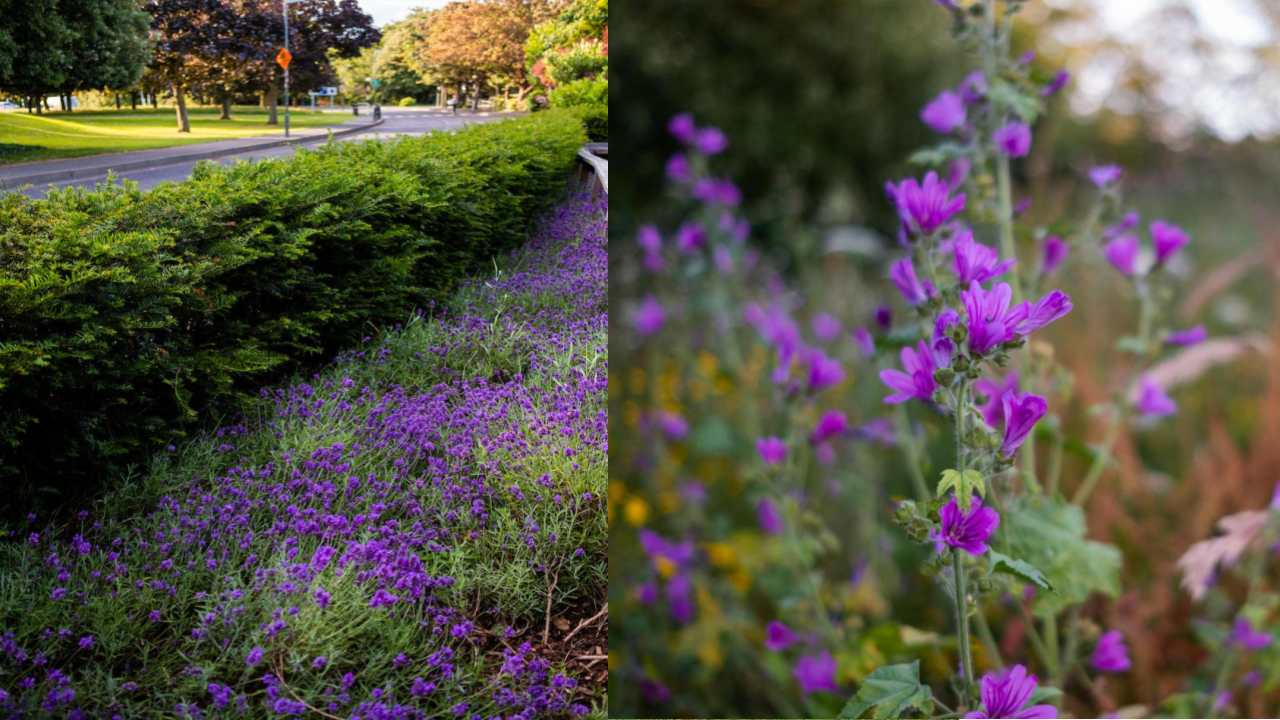
B. Pollinator Friendly planting
- 2021 natural Wildflower meadow area increased behind the Agriculture Building, and James Joyce Library
- 2019 Wildflower meadow planted at the Energy Centre boosted awareness of our initiative with lots of images being taken and shared online by the UCD Community and visitors to the Belfield Campus
- 2019 further planting to link developing meadow between Newstead and the Sports area
- 2018 Pollinator Friendly Chess Garden is a key location on the Belfield Campus to raise awareness of our UCD Campus Pollinator Plan in partnership with the National Biodiversity Data Centre
- Sedum roofs on new buildings such as the Moore Centre for Business, the University Club and Ashfield Student residences
C. Provide opportunities for wild pollinator nesting habitats: hedgerow, earth banks and hotels…
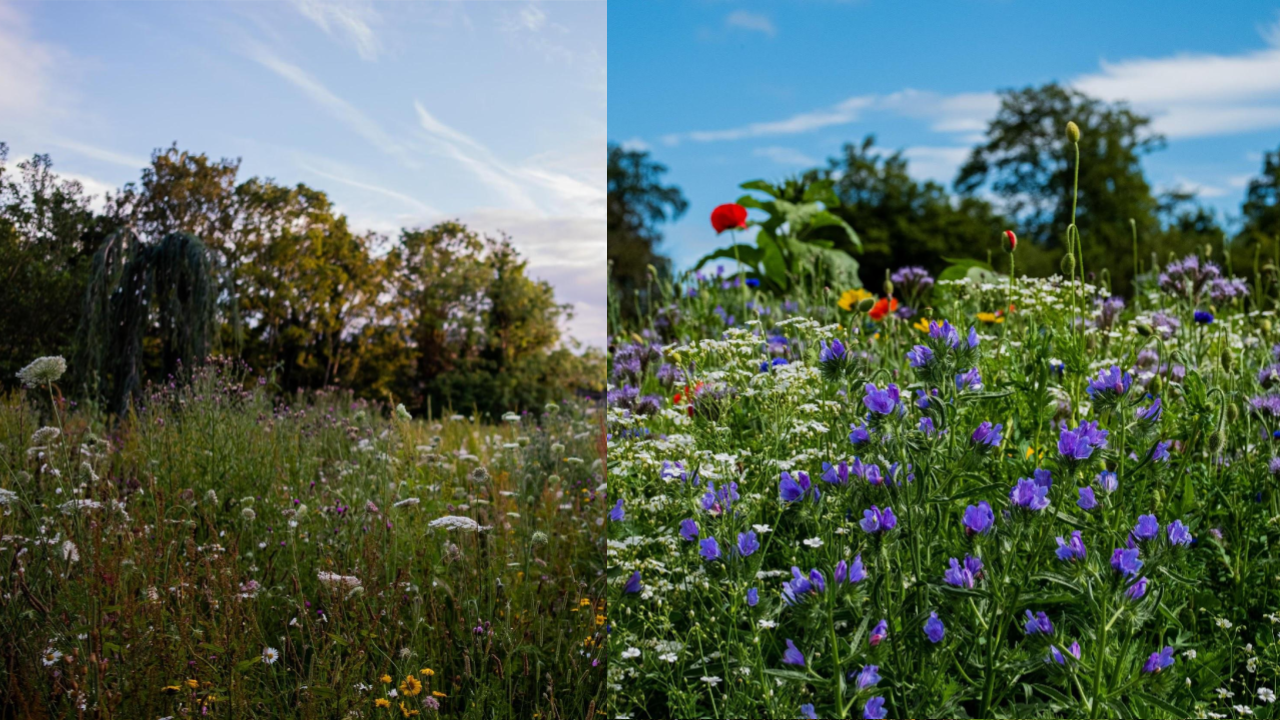
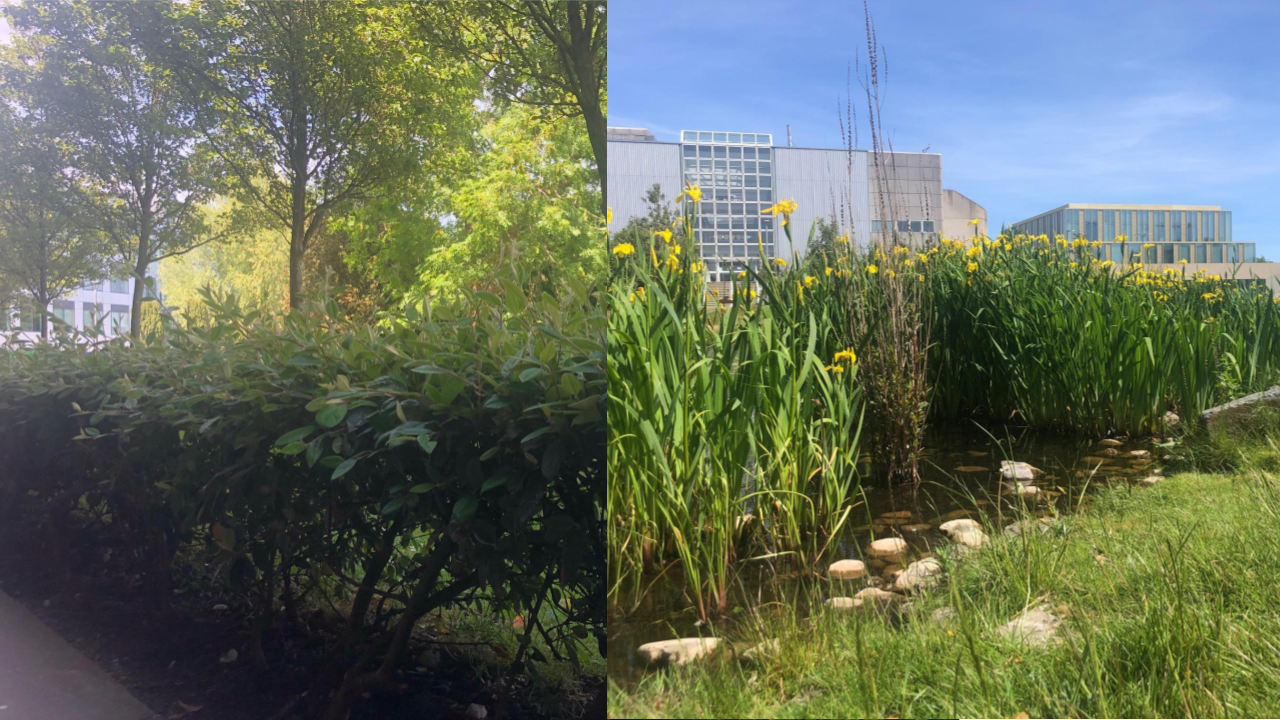
D. Manage and control use of pesticides
- The phased discontinuation of Glyphosate for weed control in amenity areas on Campus has been a major initiative carried out over the past number of years. Glyphosate is not permitted to be used for weed control on amenity areas of Belfield campus.
- Use of bark/leaf mulch to suppress weed growth
- Use of battery powered strimmer’s to control weeds
- Hand weeding and selective spot treatment by qualified and trained users
- Integrated pest management– use of approved amenity plant production products
E. Raise awareness of pollinators amongst our community.
Upcoming engagement:UCD Digital Festival 2021
Ongoing engagement: 2020 Green Campus Nature and Biodiversity colouring book Tag us in your drawings!
- UCD Library has joined the UCD Campus Pollinator plan by commiting to creating awareness of Pollinators on their social media and staff newsletters – this commitment coincides with the addition of a newly extended wildflower meadow behind the James Joyce Library.
- Biodiversity Week 2021, World Bee Day 2021, UCD Green Week 2020, UCD Digital Festival 2020,
- Green Campus 2020: Spring Public meeting: Student presentation ‘How to make a wildflower seed bomb’, UCD Nature Instagram,
- World Bee Day Activities 2019: alongside UCD Agriculture and Food Science/ UCD Earth WalkTalk, Bee Identification Workshop Spring 2019
- Green Week 2019: Guided woodland walk lunchtime series, Insect Hotel workshop with Hortsoc, Biosoc & EcoUCD
- UCD Community events: Staff Engagement Day, Open Day, Festival 2019: UCD Nature Guide launch
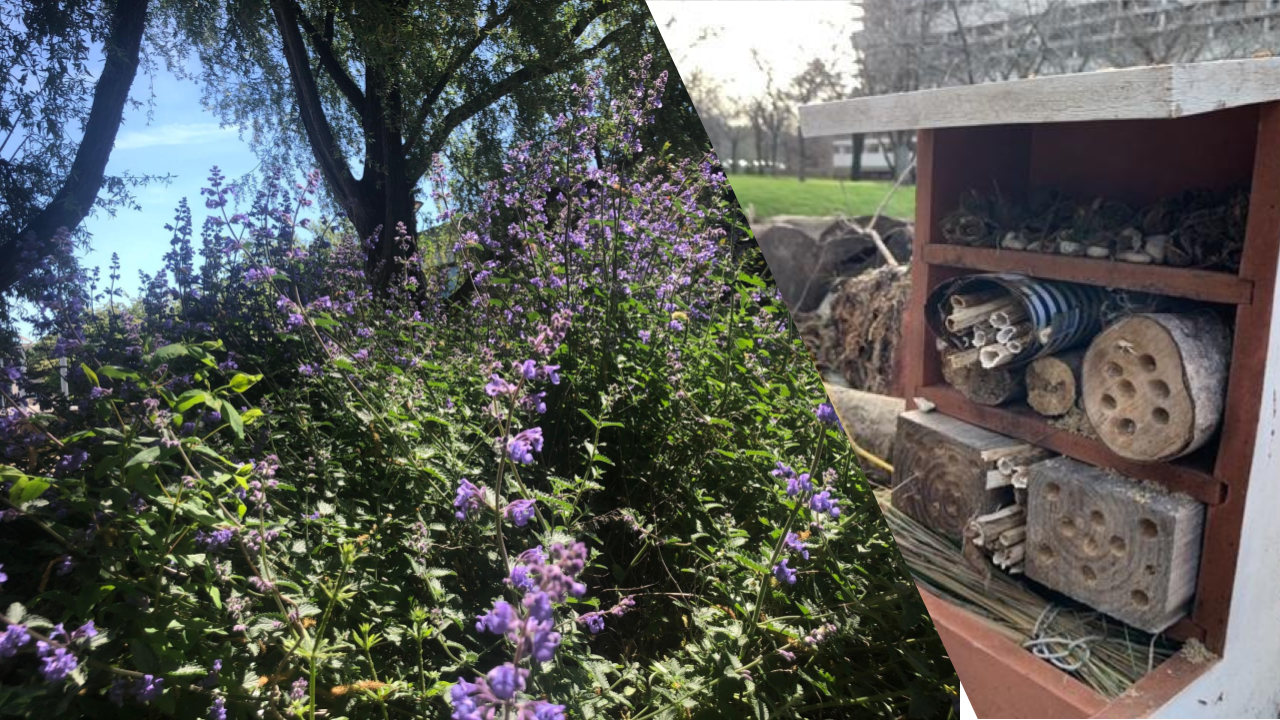

F. Track progress and recognition for effort
- Research on the benefits of Green Infrastructure being carried out on the UCD University Club Green Roof by researchers from the School of Agriculture and Food Science and Dublin City Council
- Green Campus Biodiversity Student coordinators projects on biodiversity on campus (e.g. UCD Nature and Biodiversity Colouring Book & UCD Nature Guide)
- Bee monitoring Transect carried out by research professionals in UCD Agriculture and Food Science : tracking the increase in the number of pollinators on our campus
- Add to our body of knowledge through reporting
to the National Biodiversity Data Centre, data
collection and research (2018 report, 2019 report)


